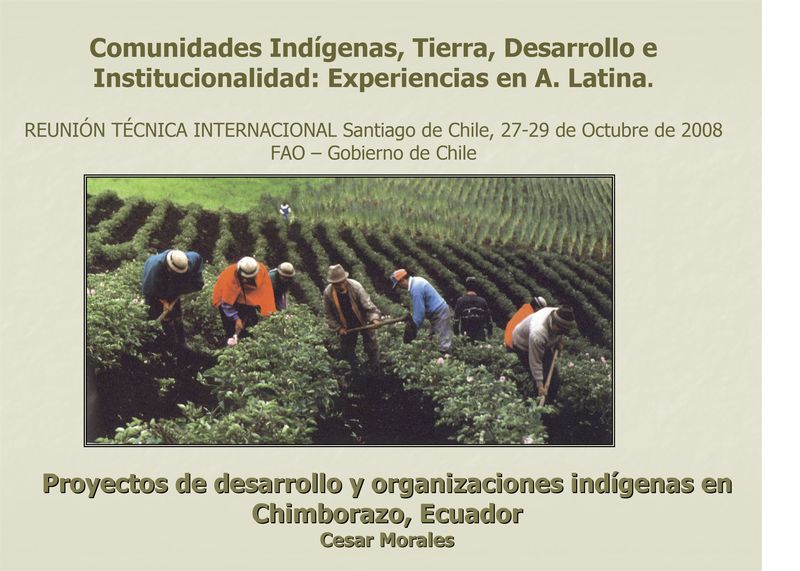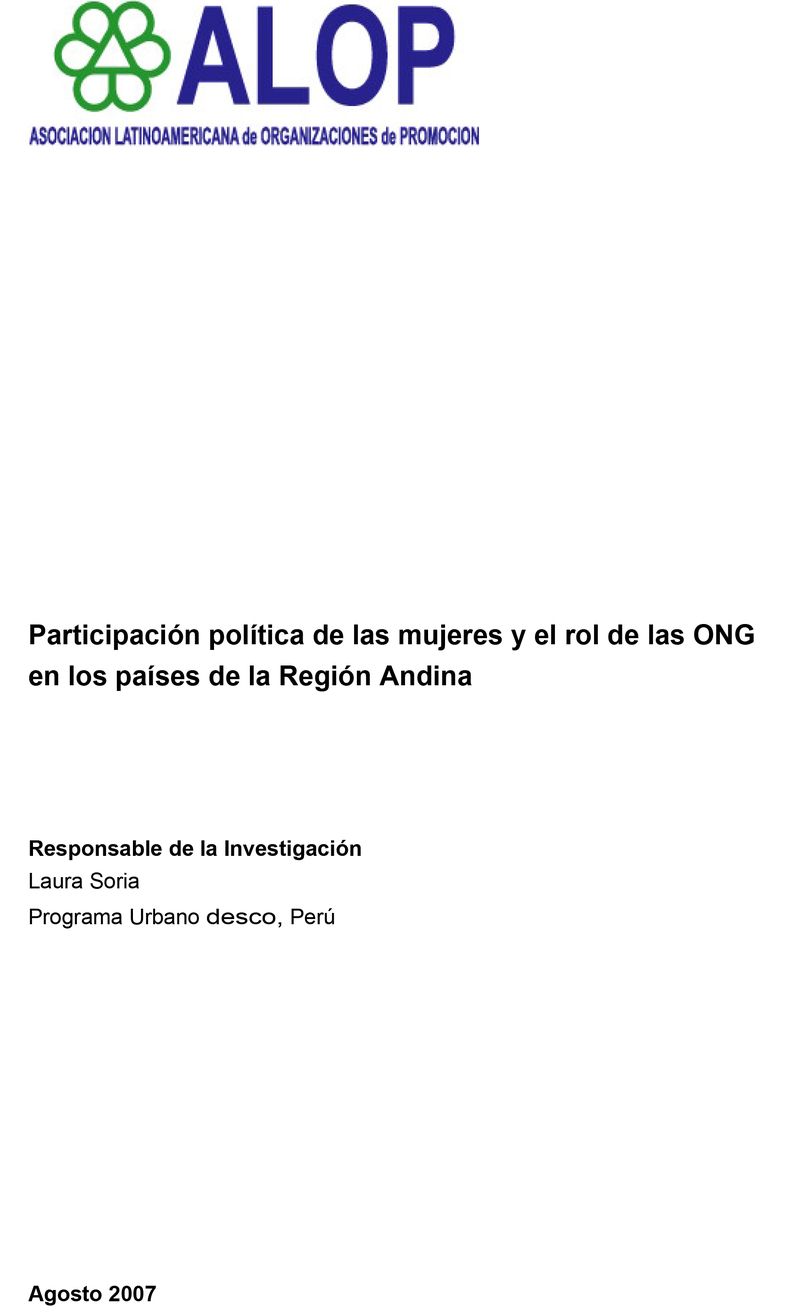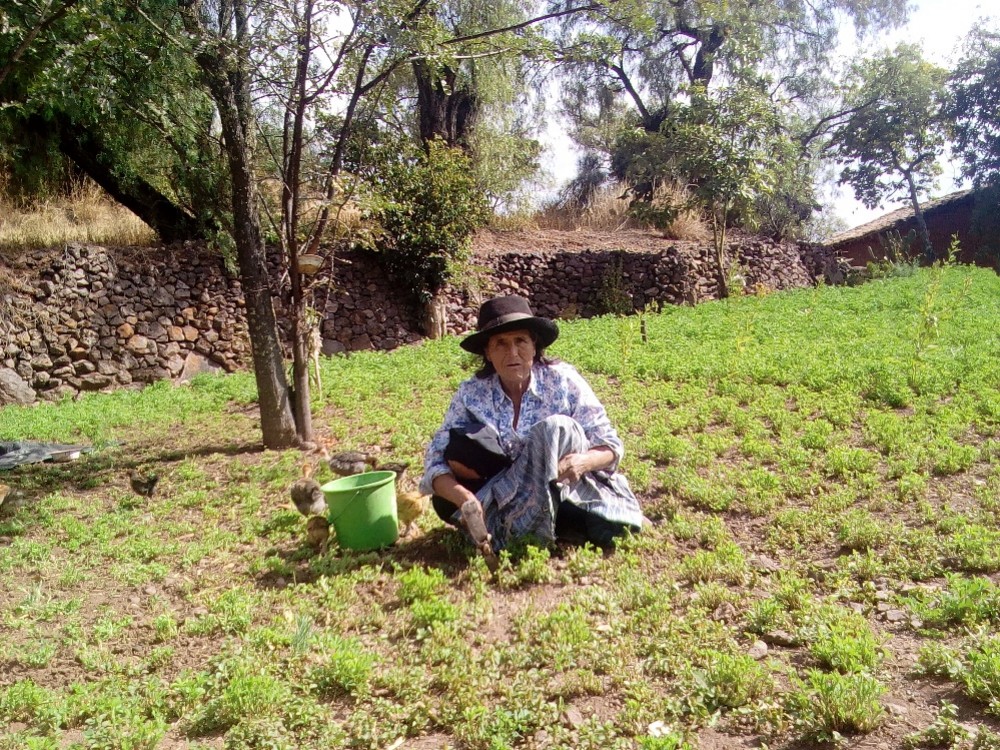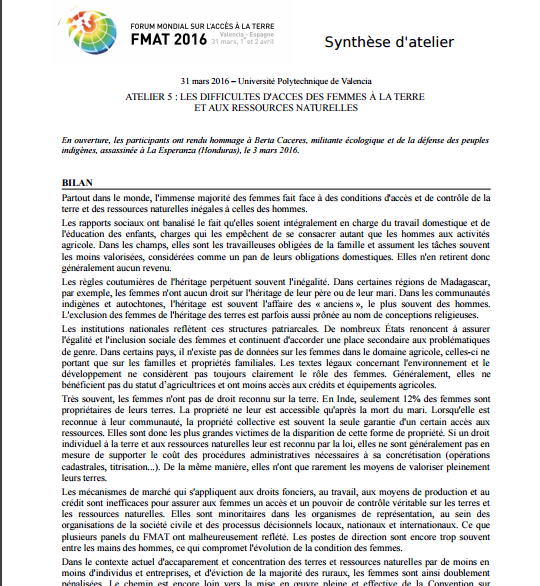Organizaciones Indígenas y Desarrollo. El caso de Chimborazo
Documento realizado para la REUNIÓN TÉCNICA INTERNACIONAL sobre Comunidades Indígenas, Tierra, Desarrollo e Institucionalidad: Experiencias en A. Latina . Octubre de 2008 Entre sus principales conclusiones están: - Experiencias exitosas contexto de un proceso de creciente toma de conciencia y reivindicación identitaria autoestima cultural (se refleja además en la participación política de indígenas mediante voto directo) - Recuperación de formas propias de organización, (fenómeno acompañado de surgimiento de diversidad de organizaciones vinculadas a distintas creencias religiosas.








